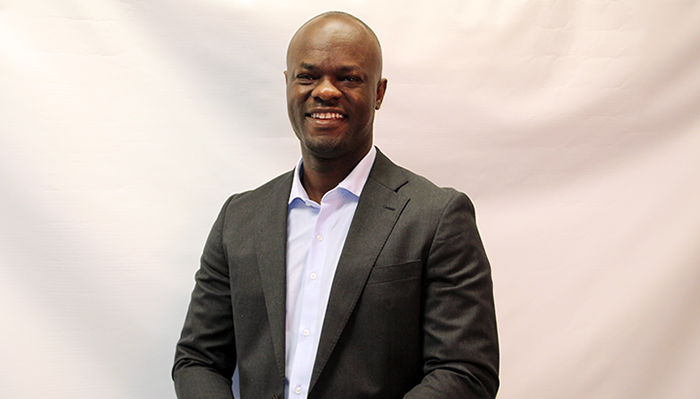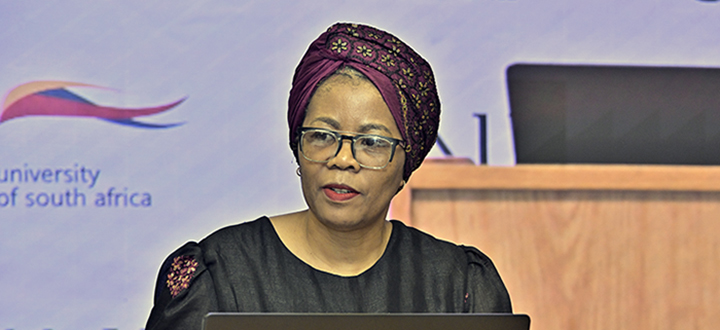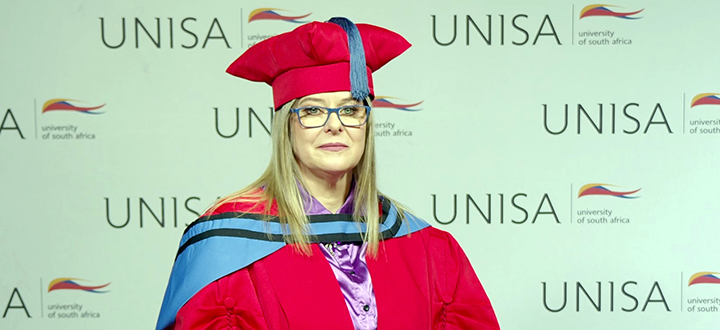College of Science, Engineering & Technology
Unisa astrophysicist receives prestigious Royal Society award

Distinguished Professor James Okwe Chibueze, of the Department of Mathematical Sciences in the College of Science, Engineering and Technology
The Royal Society is a fellowship that comprises many of the world's most eminent scientists and is one of the oldest scientific academies. On 27 August 2025, the Royal Society announced the 2025 recipients of medals and awards. Unisa’s Distinguished Professor James Okwe Chibueze, of the Department of Mathematical Sciences in the College of Science, Engineering and Technology, was among the recipients announced and was awarded the Royal Society Rising Star Africa Prize. The award is made in recognition of his work on advancing African astronomy through pioneering research, capacity building and international collaborations.
The Rising Star Africa Prize is awarded to recognise early-career research scientists based in Africa who are making innovative contributions in the physical, mathematical and engineering sciences. The medal is accompanied by a grant of £14,000 and a personal gift of £1,000. This award also comes with a Prize Lecture, which the recipient delivers on the evening of the awards ceremony.
In congratulating this year’s awardees, Sir Adrian Smith, President of the Royal Society, said: "The recipients of this year’s medals and awards have all made outstanding contributions to science and its applications for the benefit of humanity. They have done so by furthering our understanding of the processes that govern the world around us, changing the practices of academia to build a more robust and inclusive research environment, and engaging new audiences."
He added: "Celebrating these diverse contributions is core to the Society’s mission, and I offer my congratulations to all the 2025 recipients".
Chibueze’s research interests are centred on high-mass star formation, radio galaxies and the use of cutting-edge observational techniques such as very long baseline interferometry (VLBI). His landmark discovery of the interaction between intra-cluster magnetic fields and the jets of radio galaxies, published in the journal Nature, has been globally acclaimed. This groundbreaking work has contributed to advancing our understanding of galaxy cluster dynamics and radio jet morphology.
His current work explores the 3-D morphology of our home galaxy, the Milky Way and a high-resolution study of massive star formation. The birth process of big stars is unveiled by observing masers and molecular gas associated with star-forming regions in the Milky Way with radio telescopes, and tracing the gas motion.
Chibueze has a strong passion for human capacity development in astronomy, especially on the African continent. He spearheads educational programmes in Africa, such as the Pan-African School for Emerging Astronomers (PASEA) and Development in Africa through Radio Astronomy (DARA), aimed at nurturing the next generation of African astronomers.
Reflecting on his accomplishments, Chibueze said: "I hope that this award and the opportunity to deliver a Prize Lecture provide much-needed visibility to my work and engender an increase in collaboration with more astronomers across the United Kingdom and the globe. The monetary prize will be invested in my research, including using it to attend relevant conferences, and a fraction would be used to support at least one African astronomy student."
* By Dr Nozipho N Madzivha, Communications and Marketing Specialist (acting), College of Science, Engineering and Technology
Publish date: 2025-08-29 00:00:00.0


 Reflective PVC Summit intensifies Unisa as a site of excellence
Reflective PVC Summit intensifies Unisa as a site of excellence
 Unisa marks Pan African Women's Day with a powerful call to action
Unisa marks Pan African Women's Day with a powerful call to action
 Remarkable scholar receives international recognition for impactful research
Remarkable scholar receives international recognition for impactful research
 Support structure and commitment required to achieve success
Support structure and commitment required to achieve success
 Celebrating women leaders in research management
Celebrating women leaders in research management